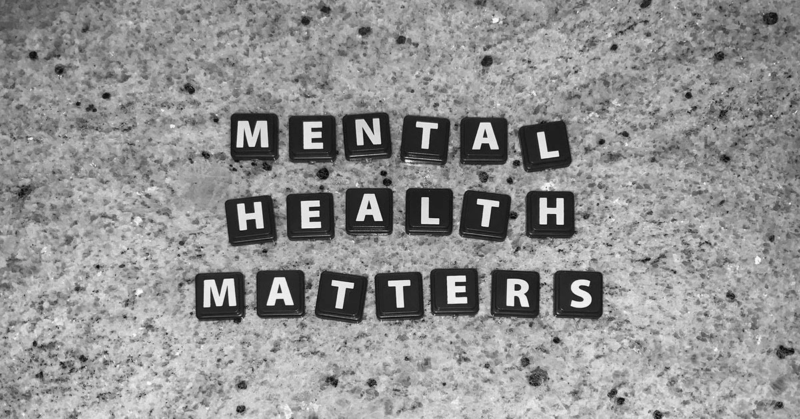
Table of Contents
Improving Your Mental Health
Written By: Charlie Health Editorial Team
January 12, 2022
4 min.
If you're navigating a difficult situation, living with a mental health condition, or looking to improve your wellness, here's how to care for your mental health.
Learn more about our Clinical Review Process
Table of Contents
Mental wellness is important in every stage of life, from adolescence to adulthood. It’s not only integral to your overall health, but it affects your ability to carry out everyday activities, maintain healthy relationships, and even take care of your physical health.
Of course, we all struggle with mental health concerns from time to time—and that’s completely normal. According to the National Institute of Mental Health (NIMH), mental health issues are incredibly common in the United States, affecting tens of millions of people annually. So, how can you improve your mental health?
Whether you’re navigating a difficult situation, living with a mental health condition, or looking to improve your overall wellness, here’s how you can care for your mental health.
Signs and symptoms of mental health issues
Even if you’re not experiencing a diagnosed mental health disorder, learning about the symptoms of mental health issues and their early warning signs can help you take action. Early intervention can help reduce the severity of mental health problems. Sometimes, it can even help delay or prevent major mental health issues altogether.
Signs and symptoms that you might need to pay more attention to your mental health include:
- Changes in your sleep schedule or appetite.
- Dramatic shifts in your emotions, mood swings, or persistent feelings of sadness.
- Withdrawal from social activities and a loss of interest in previously enjoyed activities.
- A decrease in functioning at school, work, or in daily life.
- Problems with concentration or difficulty focusing.
- Intense fear, anxiety, or nervousness in everyday situations.
Join the Charlie Health Library
Get mental health updates, research, insights, and resources directly to your inbox.
You can unsubscribe anytime.
Simple steps to improve your mental health
Your mental health matters. If you find yourself experiencing mental health symptoms or struggling with your mental health, make sure you take action. Mental health conditions can be as serious as broken bones or heart disease—and just as common (if not more so). Here's how to take the first steps.
- Get enough sleep. Sleep deprivation leads to poor mental health, with symptoms ranging from impaired judgment to higher stress levels. Stimulants like caffeine and nicotine keep your brain alert, and even depressants like alcohol can negatively impact your sleep. Give yourself some extra time to wind down before bed to ensure a good night's sleep.
- Make physical activity a daily priority. Dedicate some time to yourself by making sure you spend quality time moving your body each day. There are countless free exercise and yoga videos online, and you can always walk or jog outside. Physical activity is good for your mind and body, and it can help you unload anxiety and stress in a healthy way. In fact, exercising for as little as 30 minutes a day can help improve your mood and self-esteem.
- Eat a balanced diet. Your physical health can have a major impact on your mental health—and vice versa. A healthy, nutrient-dense diet can help you maintain good mental health by boosting your mood, energy levels, and mental clarity.
- Try meditation. Practicing mindfulness, meditation, and relaxation techniques can drastically reduce stress, which contributes to heightened mental health struggles. Similarly, with exercise, there are a huge number of meditation books, tutorials, and even apps to help get you started with a meditation practice. Instead of applying pressure to clear your mind, just pay attention to the instructions and yourself, whether it's the rhythm of your breath or the thoughts in your head. Mindfulness not only helps improve mental health symptoms, but it can also make a positive change in your overall thought processes.
- Confide in a close friend or family member. One of the best ways to clear your mind is to talk through your problems aloud. By confiding in a close friend or family member, you'll help reduce your anxiety and stress levels. Why not schedule a phone call or video chat with a trusted friend and spend some time unpacking any built-up feelings? If you don't feel comfortable opening up to a loved one, the National Alliance on Mental Illness (NAMI) offers various support group resources.
- Reach out for professional support. If you're constantly feeling overwhelmed, consider seeking professional mental health care. Even if you're not living with a diagnosed mental health disorder, quality mental health treatment can improve your quality of life and help you move toward a healthy lifestyle.
Contact us
Whether you're living with a mental health condition, experiencing a mental health crisis, or just looking to improve your mental health, working with mental health professionals can make all the difference in your mental wellness.
At Charlie Health, our online virtual intensive outpatient program connects clients to online mental health professionals and treatment in real-time based on their specific needs, not just their geography. Our compassionate, experienced therapists offer comprehensive treatment, including supported groups, individual talk therapy, and family therapy for high-acuity patients and their families. We're here to create an individualized treatment plan based on your unique mental health needs so you can start your journey toward sustainable recovery.





